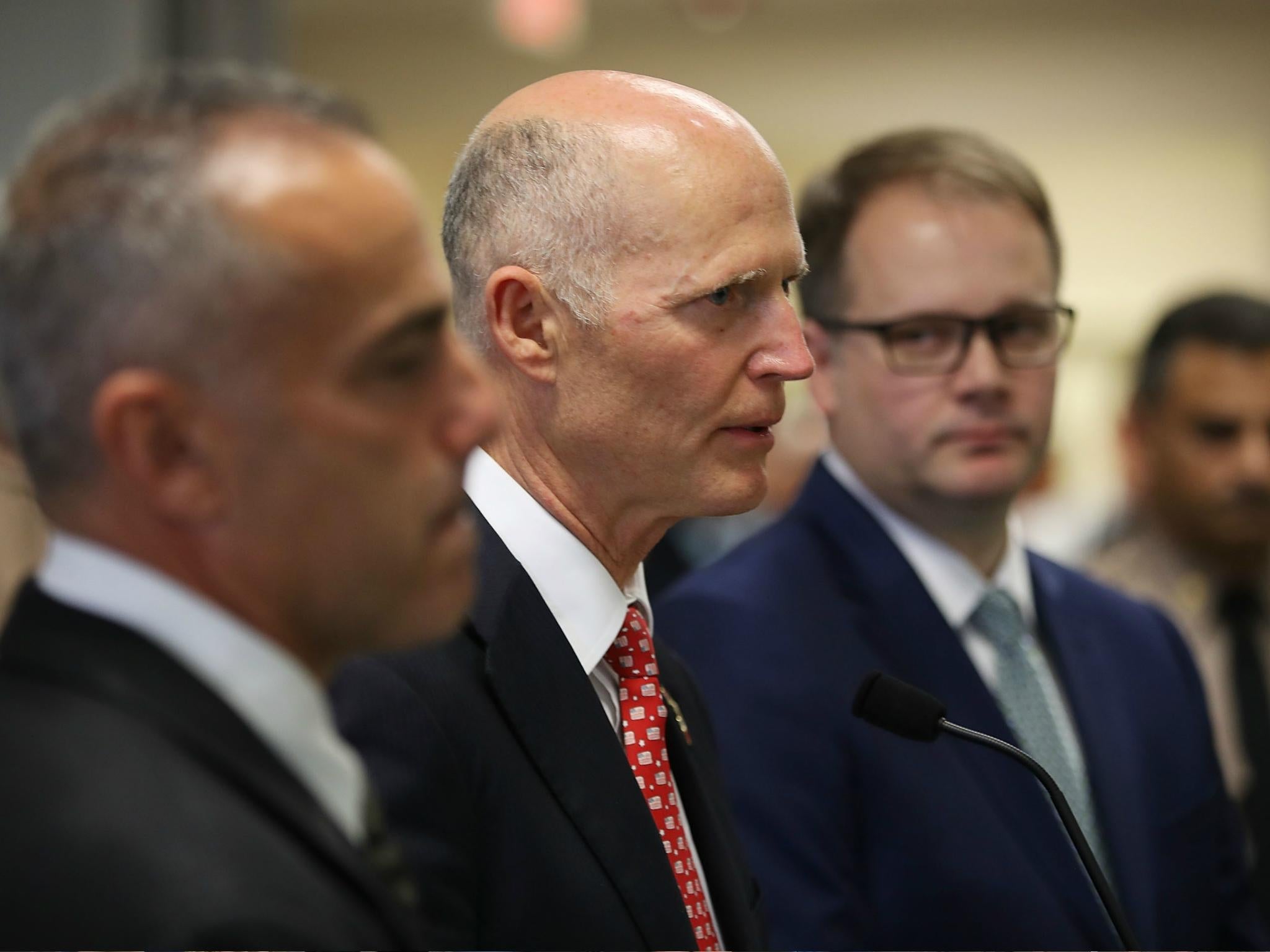Florida school shooting: Governor signs bill allowing some school teachers to carry guns
Neither school shooting survivors nor the National Rifle Association are pleased with it

Your support helps us to tell the story
From reproductive rights to climate change to Big Tech, The Independent is on the ground when the story is developing. Whether it's investigating the financials of Elon Musk's pro-Trump PAC or producing our latest documentary, 'The A Word', which shines a light on the American women fighting for reproductive rights, we know how important it is to parse out the facts from the messaging.
At such a critical moment in US history, we need reporters on the ground. Your donation allows us to keep sending journalists to speak to both sides of the story.
The Independent is trusted by Americans across the entire political spectrum. And unlike many other quality news outlets, we choose not to lock Americans out of our reporting and analysis with paywalls. We believe quality journalism should be available to everyone, paid for by those who can afford it.
Your support makes all the difference.Florida Governor Rick Scott has signed a school safety bill in the wake of the Parkland school shooting in which 17 people were killed that would allow some school teachers to carry guns.
The $400m bill, written since the 14 February mass shooting, balances “our individual rights with need for public safety,” said Mr Scott.
Neither the shooting survivors nor the powerful gun lobby organisation the National Rifle Association (NRA) are pleased with the bill, however.
The legislation creates a so-called "guardian" program that enables teachers and other school employees in participating districts to carry handguns if they complete law enforcement training.
It also raises the minimum age to buy rifles from 18 to 21, extends a three-day waiting period for handgun purchases to include long guns, and bans bump stocks that allow guns to mimic fully automatic fire.
The NRA, however, thinks even those limits are a sign of "bullying and coercion," as NRA and Unified Sportsmen of Florida lobbyist Marion Hammer said in a statement. The group felt the new limits restrict people's Second Amendment right to bear arms and a way to punish and demonise legal gun owners.
"Obviously, this is what we've been fighting for. It's nowhere near the long-term solution," said Chris Grady, a senior at Marjory Stoneman Douglas High School.
"It's a baby step, but a huge step at the same time. Florida hasn't passed any legislation like this in God knows how long. It's nowhere near what we want, but it's progress and uplifting to see," he said.
Parkland survivors have been out marching, taking politicians to task on social media, and speaking to the press in full force since the shooting, advocating for an assault weapons ban across the country, but particularly in Florida. The gunman, suspected to be former student Nikolas Cruz, used an AR-15 assault-style rifle.
The bill would still allow the AR-15 to be sold in the state.
Mr Scott pointed out though that he is pleased the "guardian" program is not mandatory, since he is "not persuaded" to fully support it, as the NRA would have most likely wanted.
The program will be up to local officials to implement and "if counties don't want to do this, they can simply say no," he explained.
The voluntary programme would require these so-called guardians to complete 132 hours of comprehensive firearm safety and proficiency training, pass a psychological evaluation, submit to and pass drug tests; and complete certified diversity training.
It also excludes "individuals who exclusively perform classroom duties as classroom teachers" from participating in the programme.
It was named after Coach Aaron Feis, who had lost his life protecting students during the shooting.
Though the Broward County teachers union supports the overall bill, they did take issue with the guardian programme and want it taken out during the state's next budget go-round.
He also acknowledged that the debate on gun control will continue, adding that "this is a time for all of us to come together, roll up our sleeves and get it done."
Mr Scott commended the Stoneman Douglas student-activists for their outspoken advocacy: You helped change our state. You made a difference. You should be proud."
The bill also creates new mental health programmes for schools and establishes an anonymous tip line where students and others could report threats.
Improved communication between schools, law enforcement, and state agencies is also included in the bill after it was discovered the local FBI office had gotten a tip about Mr Cruz several months before the shooting took place but failed to act upon it.
“We can never replace the 17 lives lost at Marjory Stoneman Douglas High School, but in their memory we can, and through this legislation we will, do more to prevent a senseless tragedy like this from ever happening again," said Florida Senate President Joe Negron.
State Senator Bill Galvano noted that "the advice of survivors and the family members of the victims played a key role in the development of this legislation, and I was reassured to see the families of the victims join Governor Scott to see this legislation become law today".
Join our commenting forum
Join thought-provoking conversations, follow other Independent readers and see their replies
Comments